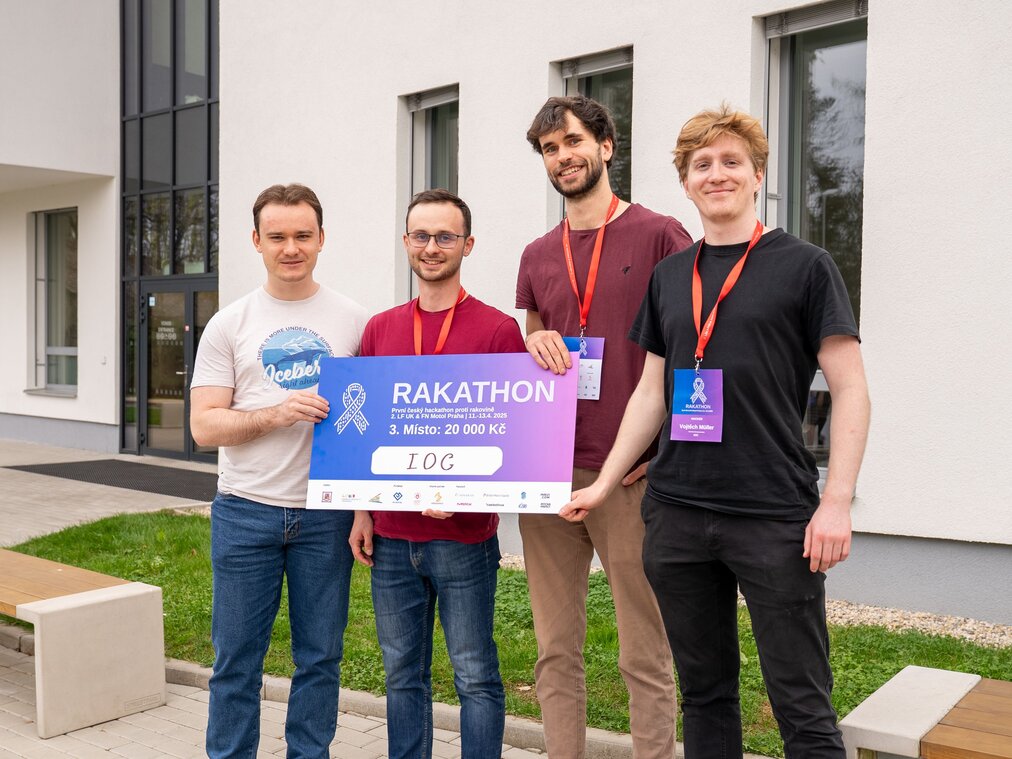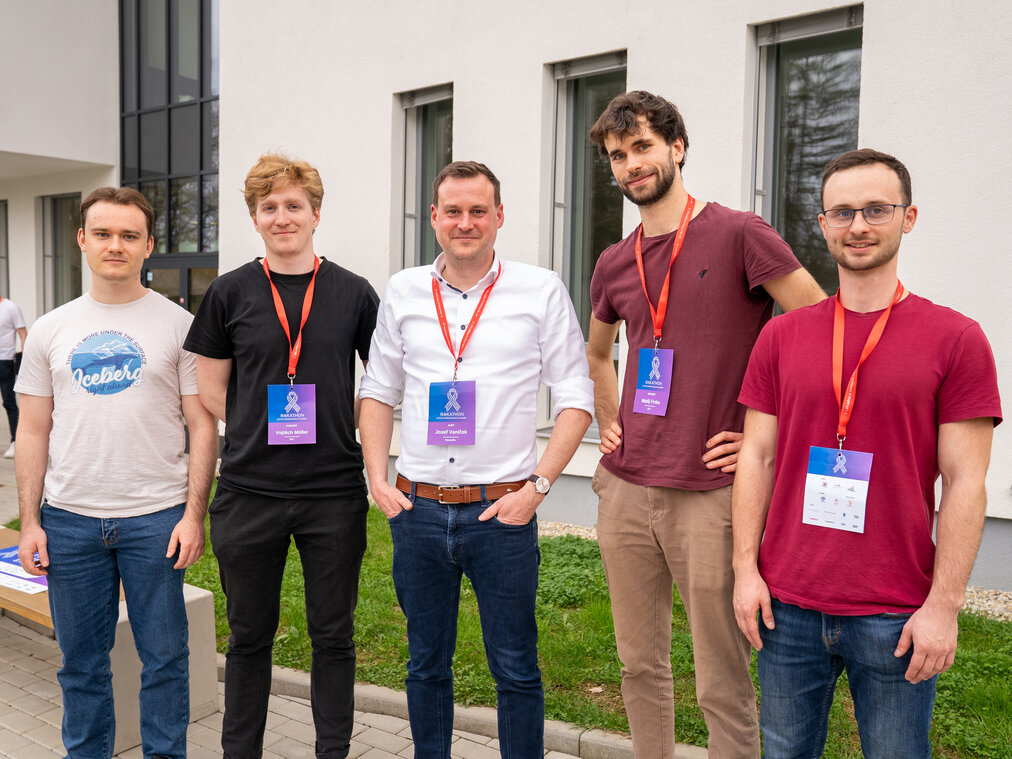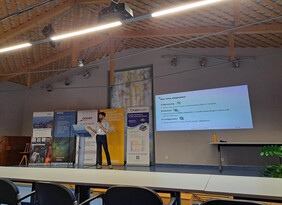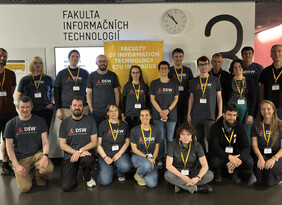
Students from the Faculty of Information Technology at the Czech Technical University in Prague (CTU FIT) have developed a tool to predict the recurrence of breast cancer. The tool is designed to assist doctors in treating patients during their first occurrence of the disease. For this achievement, the team won 3rd place and the Novartis Award at the very first cancer-focused hackathon in the Czech Republic – Rakathon 2025. The event attracted over 150 young programmers, doctors, and other experts, who spent 48 hours tackling challenges from oncology practice.
The FIT CTU team, named IOC and composed of Bc. Vojtěch Müller, Bc. Štěpán Tupý, Bc. Lukáš Petrželka, and Bc. Matěj Frnka, secured third place with the challenge called Rekurze (Recurrence). Using data from the Institute of Health Information and Statistics (ÚZIS), they created a prediction system that estimates the probability of breast cancer relapse in patients in remission.
“Our team created a breast cancer recurrence prediction tool in less than three days. It is meant to support doctors in treating patients during their first occurrence of breast cancer. With the help of data, the chances of recurrence can be minimized from the very beginning of treatment,” explains Matěj.
“We plan to continue developing the tool, especially thanks to the special award from Novartis, which includes 20 hours of mentoring and an opportunity to present the application to an expert board. We would like to move forward with development in collaboration with the company,” he adds.
Rakathon is organized by the Second Faculty of Medicine at Charles University in cooperation with Motol University Hospital. During the two-day event, teams tackled 8 challenges proposed by doctors and specialists from Motol Hospital together with competition partners. The challenges focused on topics such as the use of artificial intelligence in diagnostics, simplifying communication between patients and doctors, improving the processing of radiotherapy and chemotherapy data, and optimizing oncology care delivery in the Czech Republic. In addition to opportunities for collaboration with oncologists, students walked away with cash prizes totaling CZK 150,000.
For the first time in the history of Czech healthcare hackathons, synthetic medical records from ÚZIS were used, allowing solutions to be tested without using sensitive personal data from real patients.
“This innovation marathon focused on cancer was the first of its kind in the Czech Republic. I’m especially pleased with the record-breaking interest from IT students as well as oncologists who stepped into uncharted territory. It seems these two groups really hit it off. I expect that Czech oncology will now see a steep rise in digital innovation, allowing doctors to focus more on their patients rather than paperwork,” said Tomáš Studeník, organizer of Rakathon 2025.




